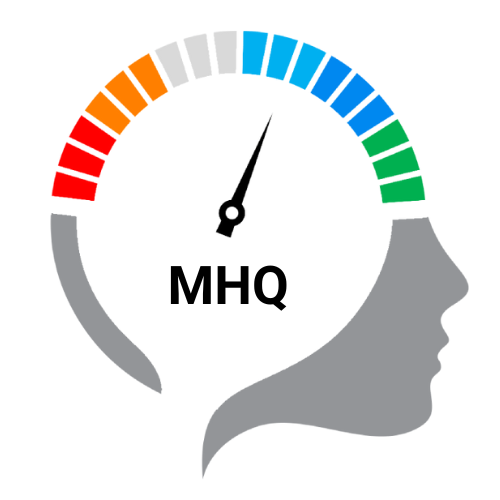

Washington, D.C. – Sapien Labs has published a new tool that provides a general assessment of mental well-being called the Mental Health Quotient (MHQ). The tool will be used to sample mental health and ill-health across a large cross section of the global population to aid our understanding of the spectrum of mental well-being.
The MHQ assessment tool is based on self report and was developed by reviewing over 120 different clinical questionnaires and interviews available within the scientific literature to build a comprehensive categorization of mental functions and symptoms (Newson et al., Frontiers in Psychiatry). The final assessment tool takes 12-15 minutes to complete and spans the full breadth of mental functions and symptoms associated with common mental health disorders. It contains 26 questions that focus on mental functions which can either be problems or assets, and 21 questions that focus on specific categories of problems that are associated with disorders. It also collects demographic and situational information to accompany the core part of the assessment.
The resulting score or MHQ consists of a composite score on a scale of -100 to +200 along with subscores across 6 categories on a scale of -50 to +100. The specific subscores provide an insight into an individual’s cognitive abilities (core and complex), emotional regulation and outlook, the perception of self, the nature of relationships with others and the connection between mind and body. The scoring mechanism is nonlinear in nature and takes into consideration various factors including the severity of consequences and inter-relationships.
More often, discussions on mental health focus around the diagnosis of specific disorders, but the development of a disorder independent tool allows us to gain a more detailed insight into the entire spectrum of mental wellbeing, from positive function to dysfunction, and can have application both within and outside the clinic.
A trial public version is available here.














